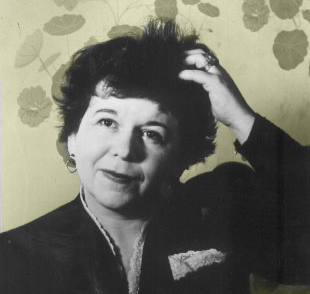
From Bermuda, a homesick Dawn Powell writes to her close friend Coburn Gilman, confessing loneliness among her upper-class companions and disillusionment with writing after her favorite of her own novels, Dance Night, was poorly received that year.
Friday
[Bermuda, Spring 1930]
Dear Coby—
Now I’m in a gaga state of British and Boston refinement so don’t let me hear you use any foul language or I’ll be all a-twitter. The damned wind blows all the time and shutters bang all night so you don’t sleep and after only these few days I have finally bowed to fate and must admit that the tearoom people are fine, high-principled Best People, and that it is Miss P. who is in error. I would like to tell them that on Monday night I dreamed of an idyllic love life with a Newfoundland dog, and on Tuesday a donkey who played the piano marvelously was my dream hero. (Page Professor Gilman.)
The coy little sun finally came out yesterday for a long time and I swam and burned agonizingly and in the night realized I’d never get home—that I’d just be buried on this terrible place. (Don’t tell Jean I think it’s terrible, but damn me if it isn’t or else I’m no nature lover as you think.)
Nature note 1.—The wind never succeeds in blowing the oleander blossoms off the trees.
N. note 2.—There are a million little blue and red velvet birds flying around trimming the bushes.
N. note 3.—Mr. Rudyard Kipling is at large here and
“If he could smile when nobody else is smiling
If he could laugh when tears were in his eye ’n
If—if—if so, then indeed, indeed.”
I feel very strange and perturbed in making this journey, and I felt from the minute I got on the boat as if I were going there only very lonesomely alone. In my ocean-wave delirium I was certain you’d open my stateroom door any minute. When finally a strange man did open it I thought I’d better be examined for hallucinations. (He’d made a mistake.)
Life is so confusing. I’ve really decided down here that I cannot bear the terrible business of writing things that mean so much to me any more, that the only solution to anything is to write things that take up only your time and an ounce of brain—say short stories—so that it means very little if they fall short, and the gain is financial, so that it smoothes out the difficulties of living. It’s difficult enough anyway without deliberately selecting work that is more than you can stand. That is, the only way to bear living is not to have things mean anything to you.
Is this clear—oh, Cliff? I don’t think so.
Do you want me to bring you an octopus, darling? There are several on hand.
Dawn
FURTHER READING
More of Dawn Powell’s wit and commentary on the difficulties of living can be found in a 1940 interview, here.
Click here for James Gibbons’ discussion of Powell’s novels.


